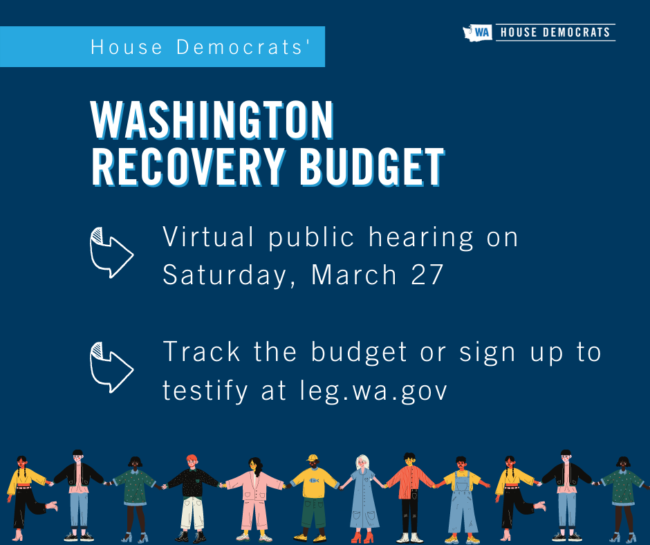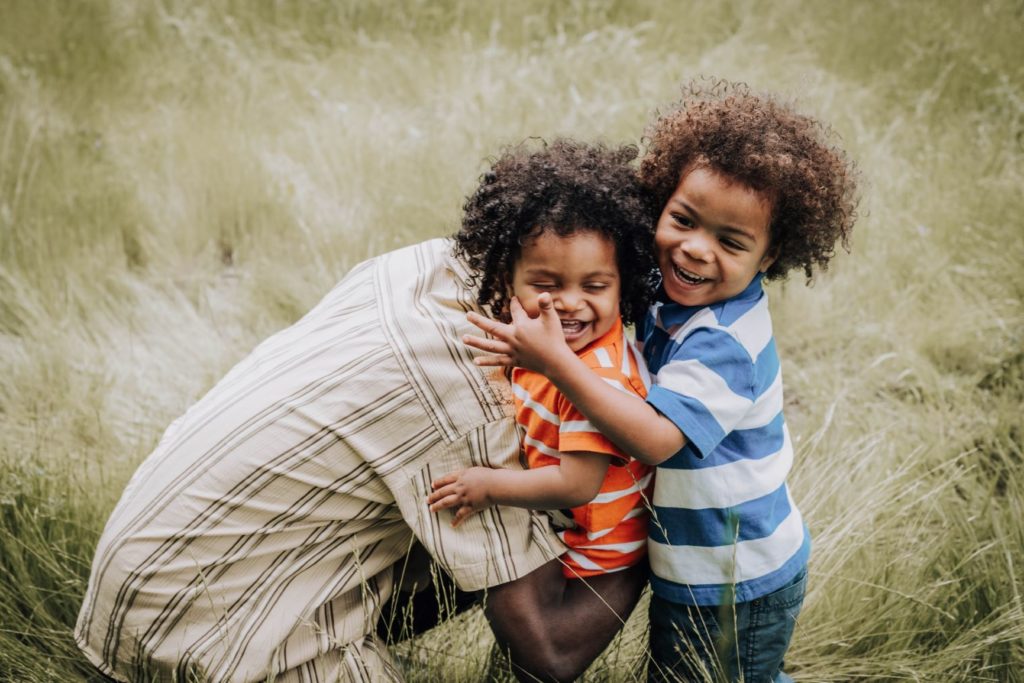
Dear friends and neighbors,
Today, House Democrats rolled out our state operating budget proposal, the Washington Recovery Budget (en Español). I am so excited to share this budget with you, which uses state and federal funds from the American Rescue Plan to support the people and families who have been hit hardest during the COVID-19 pandemic.
It has been a rough year for so many of us, and we can build back a better, more inclusive Washington that is even stronger than we were before. In the past, the legislature made harmful cuts when budgets were tight that resulted in some Washingtonians being left behind when the state once again prospered. Black, Brown, and Indigenous families and communities were among those most negatively impacted by these previous austerity budgets.
That’s why the House budget team worked intentionally to thread racial equity throughout the entire budget development process. The result is not just line items we can point to, but values that are reflected in every single decision.
Click here or on the video below to see why we can only recover if we recover together. And read on to learn more details about our Washington Recovery Budget.
COVID-19 response and economic recovery
Two of the top priorities I have been talking about since the beginning of the legislative session are COVID-19 response and economic recovery. Here are some of the ways the Washington Recovery Budget addresses these priorities:
- Over $1 billion toward paying the back rent accrued during the governor’s eviction moratorium so families can stay in their homes and landlords can recoup losses
- $250 million in small business grants to help get cash out to those businesses who kept their doors closed to protect others, as well as $600 million for unemployment insurance tax rate cuts to lessen the burden on businesses
- Over $140 million in food assistance programs so that families will not go hungry and our food security network is maintained
- Investing $400 million in child care grants and $90 million to reduce co-pays for families in the Working Connections Child Care program, which provides quality child care for families with low incomes – by investing in our early learning and child care system, families can go back to work when it is safe, knowing their children are safe too
- Nearly $38 million to increase temporary cash grants to our state’s lowest income families, and $26 million to extend these grants during these times that struggling families need them the most
- Nearly $1.2 billion for COVID vaccines, contact tracing and testing, as well as other major boosts to our public health system, plus $35 million help people who are uninsured or underinsured access the health care they need through qualified health centers, rural health centers, and free clinics
Racial equity threaded throughout

House Democrats infused equity into every part of the Washington Recovery Budget and are committed to uplifting all communities, especially Black, Brown, and Indigenous communities that face the most barriers while recovering from the pandemic.
We also recognize that our undocumented neighbors have been left out of some past federal assistance during the pandemic. These are the neighbors we rely on to keep our economy moving, from providing food from farm to shelf, to serving in other essential and frontline positions. Rather than leaving these hardworking Washingtonians behind, our budget invests $340 million in immigrant relief funds, specifically providing unemployment-related assistance to our undocumented neighbors.
A sustainable, equitable budget
In order to make these investments to get our recovery on track, our budget proposal uses some temporary and one-time funds that are available, including those from the federal American Rescue Plan Act and the state’s “rainy day” fund.
Other investments are long-term and require permanent funding sources. That’s why we are proposing a Capital Gains Excise Tax, which asks some of the wealthiest among us – those who have thrived and profited despite the pandemic’s impacts – to pay their fair share.
Our proposal pairs the Capital Gains Excise Tax with the Working Families Tax Exemption, which will provide greater financial stability for over 400,000 Washington taxpayers, and improve the lives of 1 in 4 children in our state.
Next steps
There will be a virtual public hearing on the Washington Recovery Budget tomorrow, March 27. You can watch it online here.
Everyone deserves a shot at opportunity, and that’s why I am proud to support the Washington Recovery Budget. Your comments, questions, and feedback are important to me. Please don’t hesitate to contact me, and I will continue to keep you posted on the budget as it moves forward through the legislative process.
We’re all in this together.
Sincerely,

